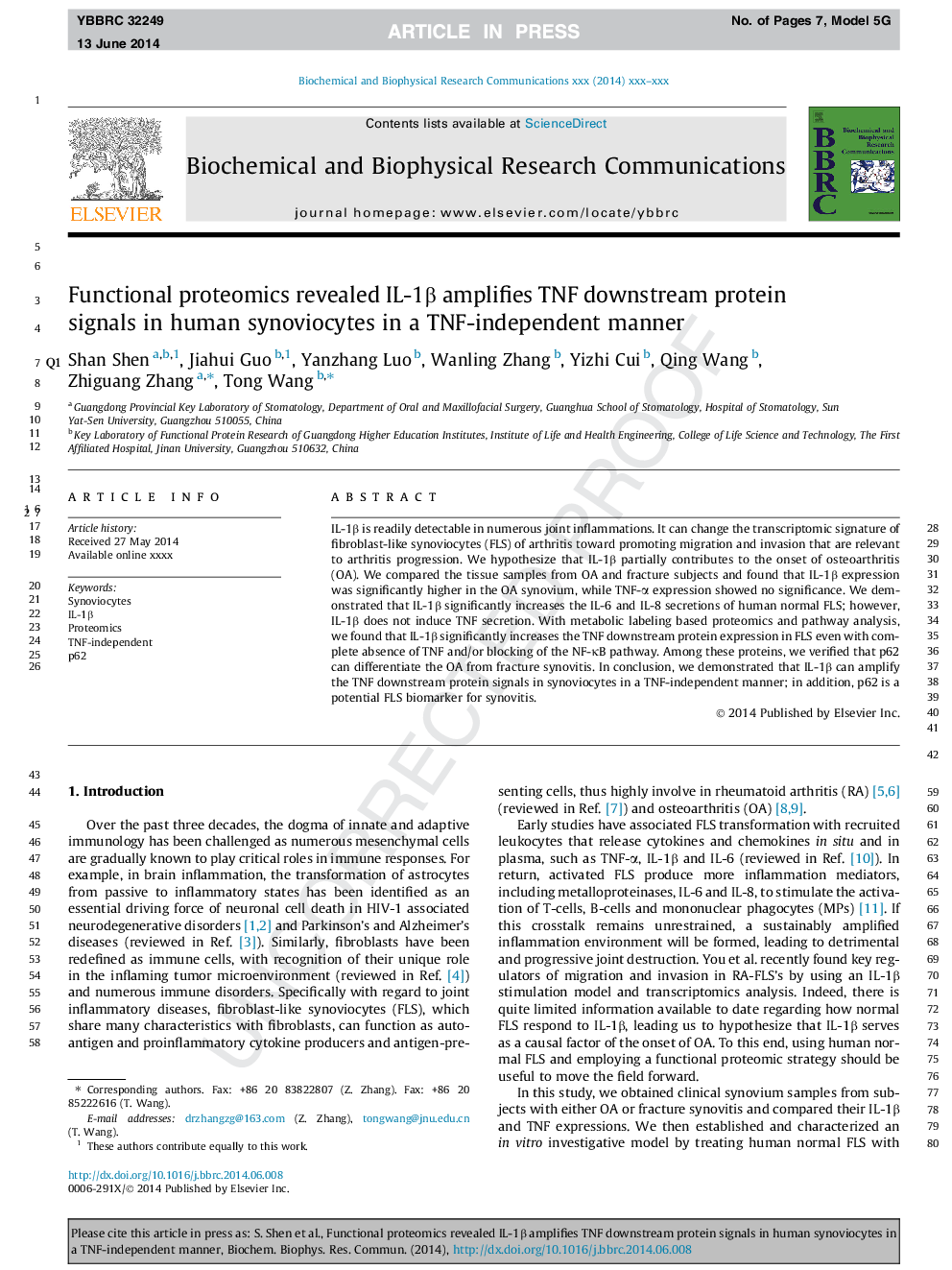| Article ID | Journal | Published Year | Pages | File Type |
|---|---|---|---|---|
| 10754926 | Biochemical and Biophysical Research Communications | 2014 | 7 Pages |
Abstract
IL-1β is readily detectable in numerous joint inflammations. It can change the transcriptomic signature of fibroblast-like synoviocytes (FLS) of arthritis toward promoting migration and invasion that are relevant to arthritis progression. We hypothesize that IL-1β partially contributes to the onset of osteoarthritis (OA). We compared the tissue samples from OA and fracture subjects and found that IL-1β expression was significantly higher in the OA synovium, while TNF-α expression showed no significance. We demonstrated that IL-1β significantly increases the IL-6 and IL-8 secretions of human normal FLS; however, IL-1β does not induce TNF secretion. With metabolic labeling based proteomics and pathway analysis, we found that IL-1β significantly increases the TNF downstream protein expression in FLS even with complete absence of TNF and/or blocking of the NF-κB pathway. Among these proteins, we verified that p62 can differentiate the OA from fracture synovitis. In conclusion, we demonstrated that IL-1β can amplify the TNF downstream protein signals in human synoviocytes in a TNF-independent manner; in addition, p62 is a potential FLS biomarker for synovitis.
Keywords
Related Topics
Life Sciences
Biochemistry, Genetics and Molecular Biology
Biochemistry
Authors
Shan Shen, Jiahui Guo, Yanzhang Luo, Wanling Zhang, Yizhi Cui, Qing Wang, Zhiguang Zhang, Tong Wang,
